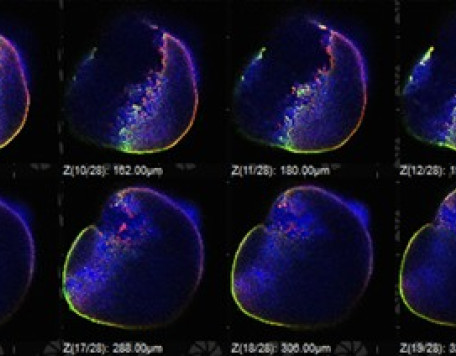© Pint of Science, 2025. All rights reserved.
What happens when you fire a laser through a gin and tonic? What happens when you put a human inside one of the world’s most powerful magnets? These questions can help to explain some of the most innovative and powerful tools for diagnosing heart attacks and genetic disease - and we will show you how! There will be model hearts to play with, quizzes, prizes and even a chance to turn your own phone into portable microscope! Please note that this event takes place on the ground floor and is accessible for those with impaired mobility.
How your genes can give you a bad heart
Professor Michelle Peckham
(Professor of Cell Biology)
Hypertrophic cardiomyopathy is a silent killer! The rugby player Danny Jones died after collapsing on the pitch during a match, not realising he was suffering from this heart condition. Nearly 1 in 500 people have a mutation in their genes, meaning they could also be at risk! With the help of new advances in microscopy (including super-resolution!), the effect these genetic mutations have on the heart can be better understood. Michelle will talk about how the heart works, how inherited mutations affect its ability to work properly, and even perform a demo involving a laser and a gin and tonic!
Cardiac MRI: the best technique to diagnose heart attacks
Dr Erica Dall’Armellina
(Cardiologist and British Heart Foundation Intermediate Clinical Research Fellow)
Everyone has heard of an MRI scan, but do you know how one works? Or how they can be used to detect heart attacks? In the UK heart attacks cause one death every eight minutes! Early and accurate diagnosis can lead to better treatment and improve prognosis. Magnetic resonance imaging is the most accurate technique to image the heart in detail and to assess how restriction in blood supply can affect its function. Dr Dall’Armellina works both as a Cardiologist with patients at Leeds General Infirmary and as a researcher at the Leeds Institute for Cardiovascular and Metabolic Medicine (LICAMM).
Map data © OpenStreetMap contributors.
Other The Social events
2025-05-21
Neuroscience frontiers: Mini-brains and zapping pain away
The Social
21 Merrion Street, Leeds, LS2 8JG, United Kingdom
2025-05-20
Blurred Boundaries: Where Science, Art, & Music Collide
The Social
21 Merrion Street, Leeds, LS2 8JG, United Kingdom






